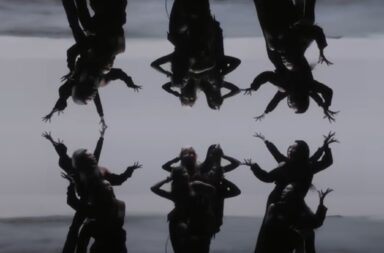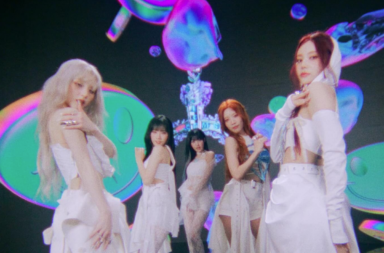
In a year that continues to bring much uncertainty, our writers still find gems in the K-pop scene, be it charismatic performances from debuting artists, surprising and thoughtful details in MVs, or dances that blend hip hop sensibilities with contemporary moves. Rounding up our SB Mid-Year Review are Anna, Lo, and Sara, who take on the challenge of finding their top three favorite albums released in the first half of 2021.
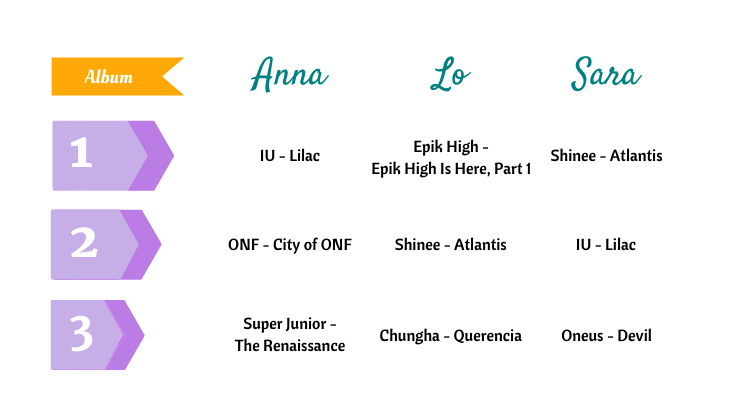
Lo: I don’t know about you two, but in my book, this was one of the hardest years for making these selections. On the one hand, things calmed down from the truly terrifying amount of music that quarantine birthed. On the other, I literally spent three hours staring at a list of three albums, trying to decide how ambition weighed against execution. Ironically, the easiest cut was removing IU’s Lilac, which shows up on both of your lists. What won you over?
Anna: Vocal queen IU definitely delivered with this fifth studio album. As always, she played a huge part in the composition of her songs, giving each and every one of them a distinct colour and sound. From the ear-catching title track “Lilac,” to the fierce “Coin,” IU showcases many aspects of her multifaceted personality. She also collaborated with prominent artists such as Dean and AkMu’s Chanhyuk for “Troll” and “Ah Puh” respectively, while Naul and Kim Je-hwi contributed lovely ballads for the album.
“My sea”, in particular, blew me away on my first listen. IU has released many classic ballads throughout her 13-year career, but the way she uses vocal techniques to convey different emotions and nuances never ceases to amaze me. This album made me even more of a fan, if that was possible. What about you, Sara?
Sara: I also had a hard time choosing what albums to include in this discussion. There weren’t many full albums on my radar to begin with, and my attention span tends to prefer the length of mini albums. So, I definitely made my mini album selections a lot faster. I actually added Lilac onto the list shortly after I listened to it in tracklist order; it just flows so seamlessly.
I love how metaphor-driven the songs are. IU delivers a captivating range of emotion, from her upbeat and playful, yet tender, “Celebrity” to the powerfully resonant, yet gentle, “My sea.” Like Anna, I absolutely adore this track as a hardcore ballad person. I love how this song follows “Empty Cup,” as if IU refills that cup by recognizing the growth that she has experienced. Lilac showcases IU’s strengths while also being a solid body of work listeners want to come back to a few more times.
Shifting gears, Lo, you and I share Shinee’s Atlantis! What caused you to add it to your list?
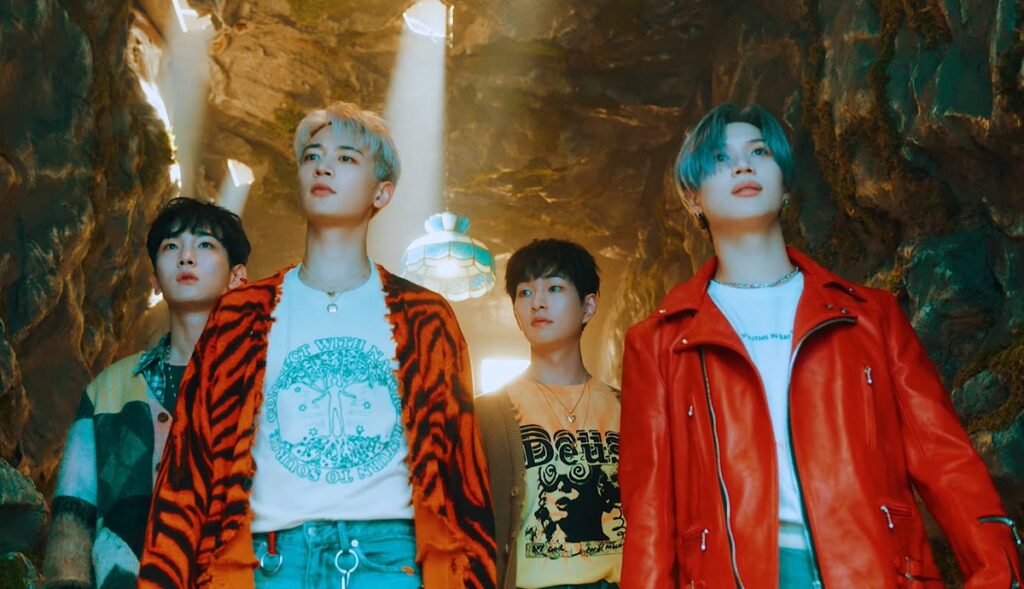
Lo: Two words: great execution. While my other picks are more conceptually ambitious, Atlantis is a slice of pure pop that has no aspirations beyond “be silly love songs”. Yet by being the best at that simple goal, it instantly earned a spot on my list.
Unlike many repackages, the new tracks mesh seamlessly into the original ones, helped by a reordering of the album rather than just slapping the new ones at the start. If you want 90s R&B-influenced pop, Atlantis tops the list. There’s funk, g-funk, new jack swing, with just enough modern slickness to keep it in the now. Then there’s the maturity. The Shinee shown here are men, with life experience. Sure, there’s how sexuality has become baked into their perspectives, rather than a performance, as they’ve grown. But tracks like “Marry You” also show a firm understanding of what marriage looks like after the wedding. Sure, Shinee doing pop/R&B is nothing new, but when they do it this well, you can’t complain about the results.
Sara, what are your thoughts?
Sara: The short answer? I love “Atlantis” and can’t get it out of my head. Funnily enough, I went to the concert where they first teased “Atlantis”; however, I couldn’t remember it. But that might’ve been because it was 2am and I really needed sleep. I actually was thinking about including Don’t Call Me in my list instead of Atlantis, but their new track really sold the repackage for me. Plus, Minho has lyric credit for “Area,” and this song is particularly meaningful.
Otherwise, I completely agree with you! Each track is distinct and has a sleek flavor that I immediately associate with Shinee. If I want a thumping hook and a tastefully controlled “angry” song, “Don’t Call Me” is there with Minho’s “sick of all your trash.” If my ears need an addictive guitar riff, “Atlantis” is first in line. If I feel like listening to a song that makes me move (and laugh a little), “Body Rhythm” is the way to go. And “Kind” just hits that mid-tempo ballad spot; it hasn’t left my Spotify On Repeat since it’s release.
Another senior SM artist made your list, Anna. What about Super Junior’s work won you over?
Anna: The Renaissance was delayed for three months before it finally dropped, but it was definitely worth the wait. This being Super Junior’s 10th studio album (!!), every track exudes their confidence and years of experience. It has a good mix of sounds, from the acoustic “The Melody”, which Leeteuk and Yesung had a hand in composing, to “Burn The Floor”, a song with grand instrumentation which goes surprisingly well with trap beats. They definitely push the boundaries with this song – operatic vocal effects complement an intense rap right at the end of the track.
Thankfully, their experiments all sound great. They show off their vocal abilities in traditional ballads such as “More Days with You”, but also prove that they know how to have fun in the iconic title track “House Party”, in which they sing about the ongoing pandemic and advise their listeners to adhere to safe-distancing behaviours.

I was confused the first time I heard this song, but it grew on me over time, especially after I began to watch the group’s hilarious live performances. This whole album, while confusing and disorienting at times, really captures the dynamic essence of Super Junior and their multi-talented members. It’s a piece of work that only this group could produce, and is a wonderful celebration of the fifteen years they have spent working together.
I spot another senior legendary group among our top picks. What did you love about Epik High, Lo?
Lo: Fun fact: Epik High’s first album may have come out in 2003, but they were formed in 2001. That’s long enough to collect a pension. There are rappers who have never lived in a world where Epik High does not exist. They are so far past being elder statesmen that it’s not even funny. In an industry that often revels in the new and young, Epik High have no problem talking about more adult issues– adult here meaning “post-30”. In the case of Epik High Is Here, it’s driven by an overwhelming sense of tiredness. Tired of the toxic lessons forced on them as children, tired of an industry that praises them for the paths they carved but forgets about them the moment they’re gone, tired of a corrupt and broken world. They have been fighting for decades and nothing has changed. Yet, they have not given up.
Tablo and Mithra Jin balance their desires for personal happiness and a satisfying personal life with poetry about racism, corruption, the toxic music industry, and the general malaise of life, all set against some of DJ Tukutz’s best work. It’s sparse and organic, but with enough kick buried deep in the mix to keep the senses thrumming. This is an album that is worn out, but getting ready for another fight, because they’re still here. Tempered by time, bored with the flash, sometimes just numb, but ultimately, Epik High is here, fighting the good fight, raising the bar, and refusing to break.
While I leaned towards the veteran, Sara, you championed a new kid on the block. How did Oneus win you over?
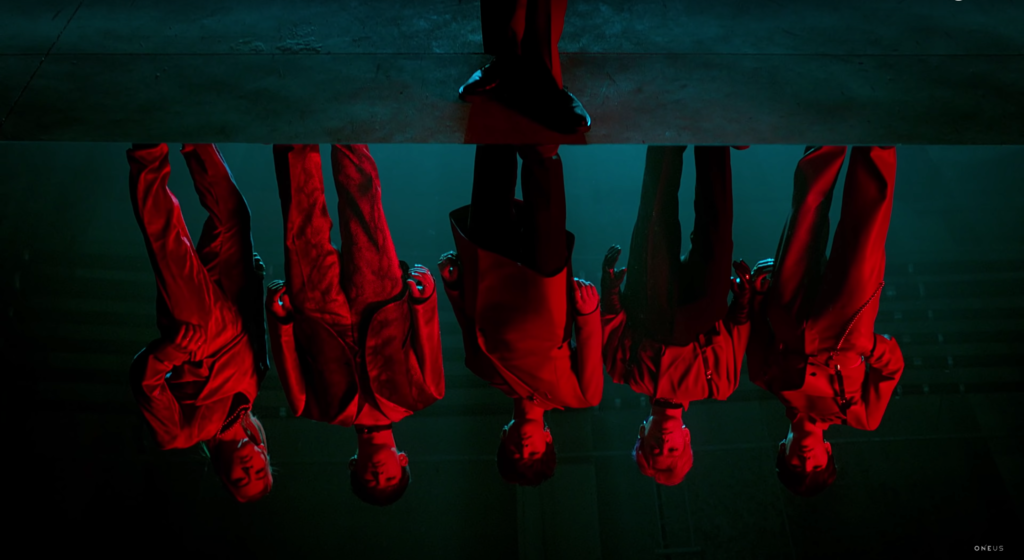
Sara: Oneus had one of the few full albums I listened to just in general, but more importantly, one that I listened to from beginning to end multiple times. It was title track “No diggity” and the balladsthat did it for me. Devil is by no means the most innovative out there, but it gives listeners a solid understanding of who Oneus are.
The group have always tackled darker, more sophisticated concepts like their debut “Valkyrie” and “To Be Or Not To Be”, their release after Road to Kingdom. But “No diggity” showcased Oneus as a powerful force of performers; their facial expressions are really off the charts! I was both completely enamored and a little terrified while watching the MV.
As for the rest of the album, I’m a sucker for ballads, and the mid-tempo “Rewind” and “I.P.U” are great for easy-listening. “Bbuseyo” lets listeners witness a dash of the group’s lightheartedness. While watching Road to Kingdom, the only Oneus member I could never remember was Seoho, but he makes his vocals hard to miss in Devil and the two ballads in particular. All in all, Devil is a well-rounded first album.
ONF also competed in Road to Kingdom and almost came out on top. Anna, how did City of ONF make your list?
Anna: I was first introduced to ONF and City Of ONF by a friend. I had heard great things about their stint on Road to Kingdom and the fantastic music composed by Monotree’s Hwang Hyun, who also played a huge part in the creation of City of ONF. The 13-track long repackage album covers a wide range of music, and demonstrates the benefits of a group working with familiar producers (namely the Monotree producers).
Rather than being limited in scope, the producers play on the strengths of each member and the combined energy of ONF to create songs that fit their musical identity, while allowing room for experimentation and growth. Additional easter eggs include the way the songs are interconnected within the album (e.g. “The Realist” and “The Dreamer”), and how the vocal and performance sub-units in the group get their own moments to shine.
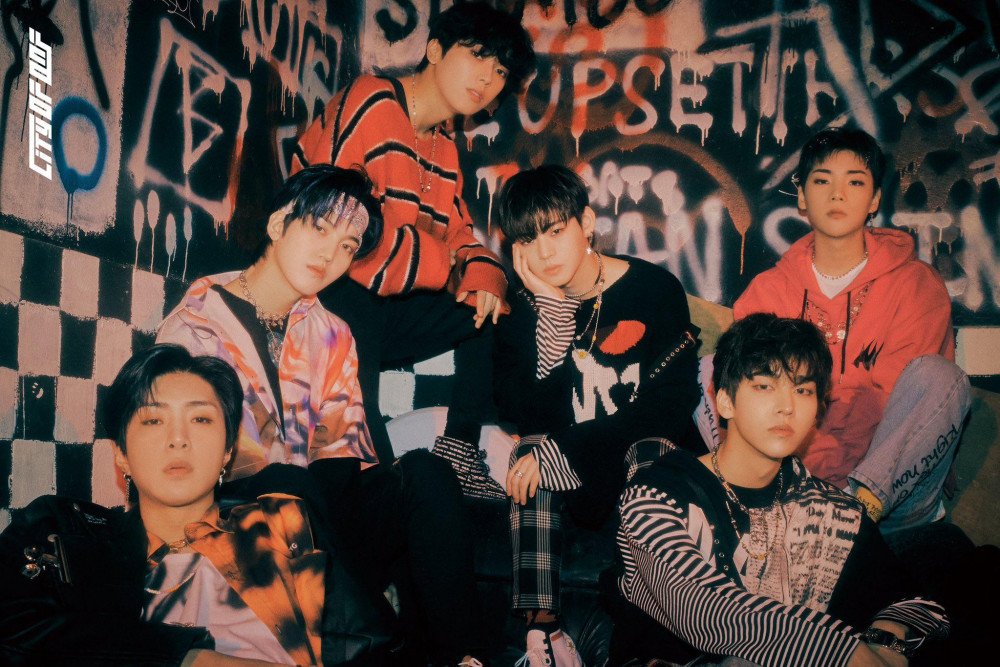
From the fairy-tale-like “Feedback” to the jazzy “My Genesis” there is something for everyone in this album. Rather than being overwhelmed by the many tracks that I was listening to for the first time, I enjoyed each one, and appreciated how versatile ONF’s sound is.
While 13 tracks makes for a beast of an album, Chungha took it one step further with her 21-track long album! What did you like about Querencia, Lo?
Lo: That was the other side of my “ambition vs execution” battle. Chungha went in a more cerebral direction. A querencia is the part of the bull-fighting arena that a bull uses to make his defensive stand, where he feels strong and safe.
Chungha’s album explores her own querencia. It has four sections, each detailing a trait that she draws strength from for three tracks, then abandoning it for the fourth. The fourth track of the fourth section also explains why she has the walls and strengths she does. She is cold, mean, and doesn’t develop relationships despite enjoying emotional intimacy, because Chungha believes people always leave.
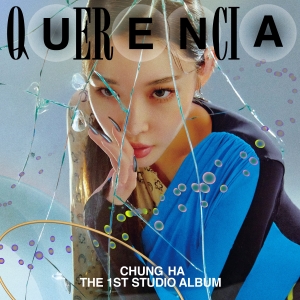
And yes, this album is messy. And bloated. And horribly uneven in terms of the tracks as pieces separated out from the whole. And the intro tracks are once again terrible; whoever composes those needs to be fired, possibly from a cannon. But when you have highlights like “Stay Tonight”, “Dream of You” and “Comes N Goes”, combined with the sheer chutzpah to make a complicated concept album in a music scene dominated by streaming numbers and remixes, you have to respect the effort. With Querencia, Chungha took risks and experimented and sure, she missed the moon, but she absolutely landed among the stars.
Although the lack of choice for albums proved difficult, both K-pop veterans and rising stars made the final cut. During these trying times, we leaned on familiar favorites and their execution of these 2021 efforts. As the year hurtles towards its close, who knows who will be on our end-of-year lists.
Stay tuned for the second part of the albums discussion, in which the writers discuss their mini album picks!
(YouTube [1][2][3][4][5]. Images via SM Entertainment, RBW Entertainment, WM Entertainment, 88rising.)

